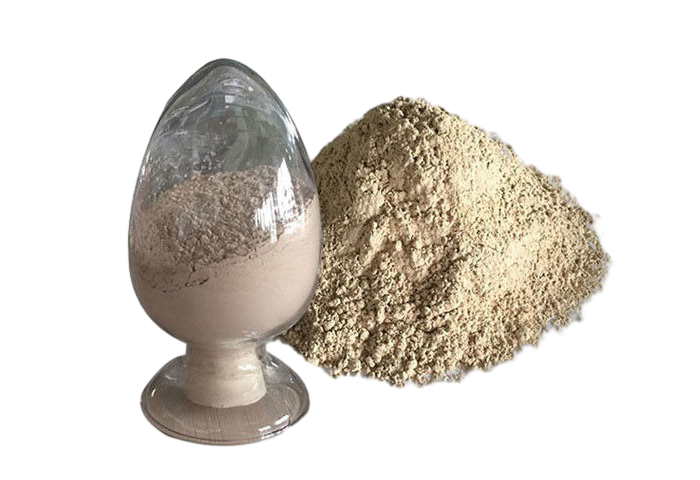
Castable refractory cement is a type of refractory material that is used in a variety of applications, from high-temperature furnaces and kilns to boilers and incinerators.
It is a type of hydraulic cement that sets and hardens when mixed with water, making it an ideal material for creating custom shapes and linings in refractory applications.
PER Refractories produces refractory castables that are widely used in high-temperature industries such as steel, cement, and petrochemicals because of their excellent insulating and heat-resistant properties.
Low cement castable refractory cement is a type of material that contains a low amount of cement, usually less than 8%. Instead, it contains a higher amount of alumina, silica, and other additives.
LCC has a low porosity and excellent resistance to thermal shock, making it ideal for use in applications such as blast furnaces, ladles, and tundishes.
Self-flowing castable refractory cement is a type of material that is designed to flow and self-level when poured. It’s ideal for use in hard-to-reach areas where casting or gunning is difficult.
Self-flowing castable has excellent strength and resistance to thermal shock, making it ideal for use in applications such as furnaces, incinerators, and kilns.
Insulating castable refractory cement is a lightweight, low-density material used to insulate high-temperature equipment. It’s made of a blend of lightweight aggregates such as perlite or vermiculite and a binding agent such as cement.
Insulating castable refractory cement is commonly used in the petrochemical and power industries to insulate furnace linings, walls, and roofs.
Conventional castable refractory cement is made of a blend of cement, aggregates, and additives. It has excellent strength and resistance to abrasion and erosion, making it ideal for use in applications such as cement kilns, incinerators, and boilers.
Conventional castable refractory cement is also used in the petrochemical and steel industries.
Castable refractory cement is a mixture of refractory aggregates, binders, and additives that are combined with water to create a dense, strong, and heat-resistant material.
The aggregates used in castable refractory cement can be made from a variety of materials, such as alumina, silica, and magnesia, while the binders used can be cement, calcium aluminate, or other materials.
The additives are used to improve the workability, setting time, and other properties of the cement.
Castable refractory cement has several properties that make it ideal for use in high-temperature applications. These properties include:
1. High Refractoriness: It can withstand high temperatures, making it ideal for use in furnaces, kilns, and other high-temperature applications.
2. High Compressive Strength: It has high compressive strength, which makes it resistant to mechanical stress, erosion, and abrasion.
3. Low Thermal Conductivity: It has low thermal conductivity, which helps to reduce heat loss and energy consumption in high-temperature applications.
4. Chemical Resistance: It is resistant to chemical attack and can withstand exposure to acidic or alkaline environments.
5. Wear Resistance: Castable refractory cement is resistant to wear and tear, making it ideal for use in abrasive environments.
Castable refractory cement is used in a variety of industries and applications, including:
1. Iron and Steel Industry: Castable refractory cement is used to line furnaces, ladles, and other equipment in the iron and steel industry.
2. Cement Industry: It is used to line rotary kilns and other equipment in the cement industry.
3. Petrochemical Industry: This is used to line boilers, furnaces, and other equipment in the petrochemical industry.
4. Incineration Industry: This is used to line incinerators and other equipment in the waste management industry.
5. Glass Industry: It is used to line furnaces and kilns in the glass industry.
1. High-Temperature Resistance:
The castable refractory cement can withstand high temperatures, making it an ideal choice for various industries that require high-temperature resistance.
2. Resistance to Thermal Shock:
It has excellent resistance to thermal shock, which means it can withstand rapid changes in temperature without cracking or breaking.
3. Durability:
It is a durable material that can withstand harsh environments, abrasion, and erosion. This makes it an ideal choice for applications where wear and tear are a concern.
4. Versatility:
It is a versatile material that can be molded into various shapes and forms to suit different applications.
5. Easy to Install:
It is easy to install, which means that it can be used for both small and large projects without much hassle.
Castable refractory cement is a versatile material that is used in a variety of industries and applications.
It is a heat-resistant material that can withstand high temperatures and has several other properties, such as high compressive strength, low thermal conductivity, and chemical resistance, which make it ideal for use in high-temperature applications.
Its applications range from the iron and steel industry to the petrochemical and waste management industries.
If you are looking for a reliable and durable material for your refractory applications, castable refractory cement is an excellent choice.
PER Refractories Company is located in Xinmi City, Henan Province, the hometown of refractory materials in China. Our company is a technology-based refractory enterprise integrating R&D, production, sales, and technical service. The rich resources and excellent quality in the territory provide unparalleled superior conditions for the production of refractory materials. Our main products are refractory clay bricks, high alumina refractory bricks, refractory silica bricks, magnesium refractory bricks, mullite bricks, insulation bricks, and other high-temperature resistant products.
Company PER refractory is the production base of green, energy-saving, and environment-friendly new refractory materials. Our company has passed ISO9001:2008 international quality system certification and GB/T24001-2004 / ISO14001:2004 environmental management system certification, enterprise-quality inspection agency certification. Our products are sold well in more than 20 countries all over the world. They are the preferred refractory products for metallurgy, non-ferrous, petrochemical, glass, ceramics, and other refractory industries.
